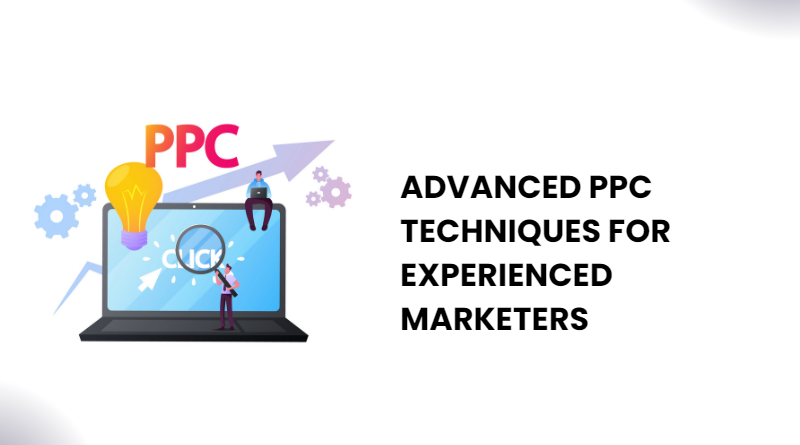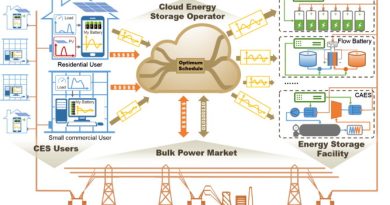Advanced PPC Techniques for Experienced Marketers
Pay-Per-Click (PPC) advertising is a powerful tool for driving targeted traffic to your website and generating leads. While the basics of PPC are essential for any marketer to understand, those with experience in the field know that advanced techniques can make a significant difference in campaign performance. This guide will delve into the advanced PPC techniques that seasoned marketers can use to take their campaigns to the next level.
Understanding the Evolution of PPC
The Basics Revisited
Before diving into advanced techniques, it’s important to revisit the fundamentals of PPC. Understanding the basics ensures that all advanced strategies build on a solid foundation. At its core, PPC involves bidding on keywords to display ads in search engine results or on websites. You pay each time someone clicks on your ad. The goal is to achieve a high return on investment (ROI) by carefully selecting keywords, crafting compelling ads, and optimizing landing pages.
The Shift to Advanced Strategies
As PPC advertising has evolved, so too have the strategies that drive success. Basic keyword targeting and ad copy optimization are still important, but today’s competitive landscape demands more sophisticated approaches. Advanced PPC techniques focus on refining targeting, leveraging automation, and using data-driven insights to outmaneuver competitors.
Advanced Keyword Strategies
Long-Tail Keywords
One of the most effective ways to improve your PPC campaigns is by focusing on long-tail keywords. These are more specific phrases that may have lower search volumes but often lead to higher conversion rates. Experienced marketers know that bidding on broad keywords can be costly and less effective, while long-tail keywords attract users who are closer to making a purchase decision.
Dynamic Keyword Insertion
Dynamic keyword insertion (DKI) is a technique that allows you to automatically update your ad text to include the exact search term a user entered. This makes your ad more relevant to the searcher, increasing the likelihood of a click. While DKI can be powerful, it requires careful management to avoid awkward or nonsensical ad copy.
Negative Keywords
Advanced marketers understand the importance of negative keywords in refining their PPC campaigns. By adding negative keywords, you can prevent your ads from appearing in irrelevant searches, saving money and improving ad relevance. This technique helps you focus your budget on searches that are more likely to convert.
Advanced Bidding Strategies
Automated Bidding
Automation has become a game-changer in PPC management. Automated bidding strategies use machine learning to adjust your bids in real-time based on various factors such as device, location, and time of day. These strategies include Target CPA (Cost Per Acquisition), Target ROAS (Return on Ad Spend), and Enhanced CPC (Cost Per Click). Experienced marketers use these automated strategies to optimize their bids and maximize ROI without constant manual adjustments.
Bid Adjustments
Bid adjustments allow you to increase or decrease your bids based on specific criteria. For example, you might want to bid more for mobile users or during certain times of the day when your ads perform better. Bid adjustments can be made based on location, device, time, and even audience segments. Advanced marketers use these adjustments to fine-tune their campaigns and ensure their ads are shown to the right people at the right time.
Geo-Targeting and Location-Based Bidding
Geo-targeting enables you to focus your ads on specific geographic locations. This is particularly useful for businesses that operate in specific regions or cities. Advanced marketers use location-based bidding to adjust their bids for different locations based on performance data. For example, if your ads perform better in one city than another, you can increase your bids in that city to capture more traffic.
Advanced Ad Copy Techniques
A/B Testing Ad Copy
Experienced marketers know that continual testing is key to improving PPC performance. A/B testing, also known as split testing, involves creating multiple versions of your ad copy and testing them against each other to see which performs better. This allows you to refine your messaging and find the most effective language for your audience.
Using Ad Extensions
Ad extensions are additional pieces of information that can be added to your ads, such as site links, callouts, and structured snippets. These extensions make your ads more prominent and provide additional information to users, increasing the chances of a click. Advanced marketers use ad extensions strategically to enhance their ads and improve click-through rates (CTR).
Crafting Compelling CTAs
The call to action (CTA) is one of the most critical components of your ad copy. A strong CTA encourages users to take the next step, whether it’s making a purchase, signing up for a newsletter, or downloading a resource. Advanced marketers experiment with different CTAs to find the most compelling language that drives conversions.
Leveraging Audience Targeting
Remarketing Strategies
Remarketing is a powerful technique that allows you to target users who have previously visited your website but did not convert. By showing these users tailored ads as they browse other websites or use social media, you can encourage them to return and complete the desired action. Advanced marketers use remarketing lists for search ads (RLSA) to customize their bids and ad copy for these high-value audiences.
Custom Audiences
Custom audiences allow you to create segments based on specific criteria, such as demographics, interests, and behaviors. For example, you can create an audience of users who have visited a particular page on your website or who have made a purchase in the past. Advanced marketers use custom audiences to deliver highly relevant ads to users who are more likely to convert.
Lookalike Audiences
Lookalike audiences are another advanced targeting technique. These audiences are created by finding users who share similar characteristics with your existing customers. By targeting lookalike audiences, you can reach new users who are more likely to be interested in your products or services. This technique is particularly effective in expanding your reach while maintaining a high conversion rate.
Data-Driven Optimization
Conversion Tracking
Conversion tracking is essential for measuring the success of your PPC campaigns. By tracking conversions, such as purchases, sign-ups, or downloads, you can determine which ads, keywords, and landing pages are driving results. Advanced marketers use conversion tracking to analyze data and make informed decisions that improve campaign performance.
Attribution Models
Attribution models help you understand the path users take before converting. There are several models to choose from, including last-click, first-click, and linear attribution. Advanced marketers use these models to allocate credit to different touchpoints in the customer journey, allowing for a more accurate assessment of which strategies are driving conversions.
Analyzing and Adjusting Campaigns
Data analysis is at the heart of advanced PPC management. By regularly reviewing performance data, you can identify trends, uncover opportunities, and make data-driven adjustments to your campaigns. Advanced marketers use tools like Google Analytics, heatmaps, and conversion rate optimization (CRO) software to gain deeper insights into user behavior and campaign performance.
Advanced Landing Page Optimization
Creating High-Converting Landing Pages
A well-optimized landing page is crucial for converting PPC traffic. Advanced marketers understand that the landing page must be closely aligned with the ad copy and offer a seamless user experience. Elements like headlines, CTAs, and forms should be strategically placed to guide users toward the conversion goal. A/B testing is also essential for optimizing landing pages to achieve the highest possible conversion rates.
Using Personalization
Personalization is an advanced technique that involves tailoring the landing page experience to individual users based on their behavior, location, or other factors. For example, you can create dynamic content that changes based on the user’s search query or the ad they clicked on. This level of customization can significantly increase engagement and conversions.
Page Load Speed
Page load speed is a critical factor in PPC success. If your landing page takes too long to load, users are likely to bounce before they even see your offer. Advanced marketers prioritize page speed optimization by minimizing file sizes, using a content delivery network (CDN), and leveraging browser caching. A fast-loading landing page not only improves user experience but also positively impacts your Quality Score in Google Ads.
Utilizing Advanced PPC Tools and Software
PPC Management Platforms
Advanced marketers often use PPC management platforms to streamline their campaigns and gain deeper insights. Tools like Google Ads Editor, SEMrush, and WordStream provide advanced features for managing large-scale campaigns, conducting keyword research, and analyzing performance data. These platforms also offer automation capabilities that can save time and improve efficiency.
Heatmaps and User Behavior Tools
Heatmaps and user behavior tools provide valuable insights into how users interact with your landing pages. By analyzing heatmaps, you can see where users are clicking, how far they scroll, and where they drop off. This information helps you identify areas of your landing page that need improvement and optimize for better conversions.
Advanced Reporting Tools
Advanced reporting tools allow you to generate detailed reports that go beyond basic metrics. Tools like Google Data Studio, Tableau, and Power BI enable you to create custom dashboards that visualize your PPC data in meaningful ways. Advanced marketers use these tools to track key performance indicators (KPIs), monitor trends, and present insights to stakeholders.
Embracing Automation and AI
Smart Bidding Strategies
Smart bidding is a form of automated bidding that uses machine learning to optimize your bids for each auction. By analyzing historical data and user signals, smart bidding strategies like Target CPA, Target ROAS, and Maximize Conversions automatically adjust bids to achieve your campaign goals. Advanced marketers use smart bidding to take advantage of AI-driven optimizations that deliver better results with less manual effort.
AI-Powered Ad Creation
AI-powered tools are now available to help with ad creation. These tools can generate ad copy, headlines, and even visuals based on data inputs. By leveraging AI, advanced marketers can quickly produce a large volume of ads, test different variations, and identify the best-performing creatives. This allows for more efficient ad production and higher campaign scalability.
Predictive Analytics
Predictive analytics involves using data, algorithms, and machine learning to forecast future outcomes. In PPC, predictive analytics can help you anticipate trends, identify potential opportunities, and optimize campaigns before issues arise. Advanced marketers use predictive analytics to stay ahead of the competition and make proactive decisions that enhance campaign performance.
The Role of Multichannel PPC Strategies
Integrating PPC with SEO
While PPC and SEO are often seen as separate disciplines, integrating them can lead to better overall results. For example, the keyword data you gather from PPC campaigns can inform your SEO strategy, helping you target high-converting keywords organically. Additionally, running PPC ads alongside strong SEO efforts can increase your brand’s visibility and drive more traffic to your site.
Combining PPC with Social Media Advertising
Social media platforms like Facebook, Instagram, and LinkedIn offer robust advertising options that complement traditional PPC campaigns. Advanced marketers use these platforms to reach specific audiences with targeted ads that align with their PPC strategies. By running coordinated campaigns across search engines and social media, you can create a cohesive brand presence and maximize your reach.
Cross-Channel Remarketing
Cross-channel remarketing involves targeting users with ads across multiple platforms after they have interacted with your brand. For example, you might show a user a display ad on a website after they clicked on your Google ad but did not convert. Advanced marketers use cross-channel remarketing to stay top-of-mind with potential customers and increase the likelihood of conversion.
Staying Ahead with Emerging Trends
Voice Search and PPC
Voice search is rapidly changing the way users interact with search engines. As more people use voice-activated devices like Amazon Alexa and Google Assistant, the nature of search queries is evolving. Advanced marketers are preparing for this shift by optimizing their PPC campaigns for voice search. This includes targeting longer, more conversational keywords and creating ads that answer common voice search queries.
The Rise of Visual Search
Visual search is another emerging trend that is gaining traction. Platforms like Pinterest and Google Lens allow users to search for products and information using images rather than text. Advanced marketers are exploring ways to leverage visual search in their PPC strategies, such as creating ads that are optimized for image recognition and ensuring that their products are easily discoverable through visual search platforms.
The Future of PPC and AI
The future of PPC is closely tied to advancements in AI and machine learning. As AI continues to improve, it will play an even larger role in campaign management, from bid adjustments to ad creation. Advanced marketers are staying ahead by embracing AI-driven tools and strategies that allow them to automate repetitive tasks and focus on high-level decision-making.
Conclusion
Advanced PPC techniques require a deep understanding of the evolving digital landscape and a willingness to experiment with new strategies. By leveraging advanced keyword strategies, bidding techniques, ad copy optimization, audience targeting, and data-driven insights, experienced marketers can achieve exceptional results in their PPC campaigns. Embracing automation, AI, and emerging trends will also ensure that your campaigns remain competitive in the ever-changing world of digital advertising.
To optimize your PPC campaigns and achieve the best results, consider partnering with affordable PPC management services that can provide the expertise and support needed to navigate the complexities of advanced PPC strategies.




